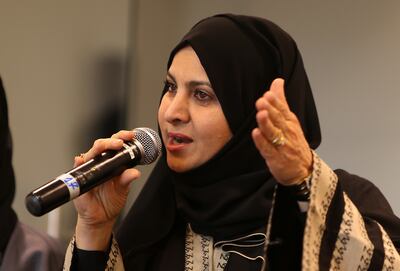Live updates: Follow the latest news on Cop28
Non-government organisations are calling for developed countries to take responsibility for their historical contribution to climate change.
Ahead of the event’s opening in Dubai on Thursday, environmental and poverty campaign groups said the gathering should press for a faster phasing out of fossil fuels and ensure that wealthier nations offer more assistance to poorer countries to help make this energy transition.
Sara Shaw, climate justice and energy programme co-ordinator at Friends of the Earth International, said wealthy nations should "take the lead in genuine climate action".
Emirates Environmental Group
"That means pursuing a just and equitable transition away from all fossil fuels and providing finance to developing countries, rather than wasting time we don’t have on false solutions to the climate crisis, like carbon markets, unproven technofixes – geoengineering – and hydrogen energy. However, this will be highly challenging to achieve at this Cop," she said.
While some analysts have said that Cop28 could help to reform regulations around carbon markets – which allow the buying and selling of carbon credits to compensate for the release of greenhouse gases – Ms Shaw described them as a "dangerous distraction" that allowed major polluters to continue to pollute.
"Friends of the Earth International hopes to prevent damaging decisions on the global carbon market and efforts to include loopholes in any text about fossil fuel phase-out," she said.
Energy transition
Cop28 is especially significant because it is where the first global stocktake takes place – an assessment of what has been achieved so far with respect to climate action.
"We desperately hope that the global stocktake will be a rigorous assessment of climate action and gaps in action under the Paris Agreement, leading to a ratcheting up of ambition and co-operation on mitigation, technology and finance, with support for the global south," Ms Shaw said.
" … Legally binding and enforceable emissions reductions targets are needed, but it seems this argument has been lost to more bottom-up and voluntary approaches," she said.
Oxfam International, which campaigns against poverty, would like to see "a justice and inequality narrative" at Cop28, said Nafkote Dabi, the organisation’s climate change policy lead.
She said richer countries and corporations were "largely responsible for the climate crisis", but more than five billion people "mostly in the global south" were paying a higher price for it.
As part of the negotiations, there should be measures to ensure what Ms Dabi describes as a just energy transition and ambitious emissions reductions. The richest countries, she said, should phase out fossil fuels fastest.
"When we’re phasing out, we need energy. All countries need to set the goal of at least tripling renewables by 2030," she said.
In addition, she said she would like to see countries, especially the wealthier ones, address what she described as energy overconsumption.
Ms Dabi said that at Cop28 she wanted a clear commitment from wealthy countries on supporting poorer states with climate finance, including covering shortfalls from previous years when the amounts provided were less than the $100 billion a year that it was agreed was necessary at Cop15 in Copenhagen in 2009.
Most severe effects
Africa accounts for just 4 per cent of global emissions, yet suffers some of the most severe effects of climate change.
It raises the question, said Durrel Halleson, policy and partnerships manager for Africa at WWF, of why the continent should have to pay for the harms caused by climate change.

He said that the loss and damage fund, set up at Cop27 to help deal with the harms caused by climate change, should "take into account historical responsibility" for climate change.
"Those who have contributed to the problem of climate change should pay for it," he said.
Agreeing terms for the fund will be a key issue at Cop28 and Mr Halleson called for it to be an independent entity. Concerns have been raised about the involvement of the World Bank, which will administer the fund for the first four years.
Mr Halleson said he wanted Cop28 to "build a strong narrative between nature and climate" because, if the world is to stay within the target of limiting temperature rises to 1.5 °C above pre-industrial levels, "nature has a big role to play".
"The world needs to start shifting from the use of fossil fuel," he said. "We need to design a transition path that is not just moving to new energy sources, but a transition path that is built on justice and inclusion. In that way we might regain hope that Cop28 might get us back on track."

Habiba Al Marashi, chairwoman of Dubai-based Emirates Environmental Group, said she was keen for Cop28 to achieve "tangible outcomes" and not to rely on "flashy slogans".
"We hope to see the governments and the industrial world take their responsibilities seriously and deliver their promises so the global population will not lose faith in these big industrial nations," she said.
Ms Al Marashi said that she hoped Cop28 would be "a Cop of the people" in which the opinions of NGOs would be important considerations in the discussions held by governments and UN bodies.
"It looks like this is going to happen because there’s a lot of active research out from different UN agencies wanting to engage the NGOs," she said.
A key part of the Cop, she said, is that it considers a wide range of sectors, including, for example, health care, making it "a full-scale sustainability conference".
"I’m very optimistic with the leadership of our country that the commitments given at this Cop will have a proper way of implementation, not only at the national level, but on a global level," she said.










